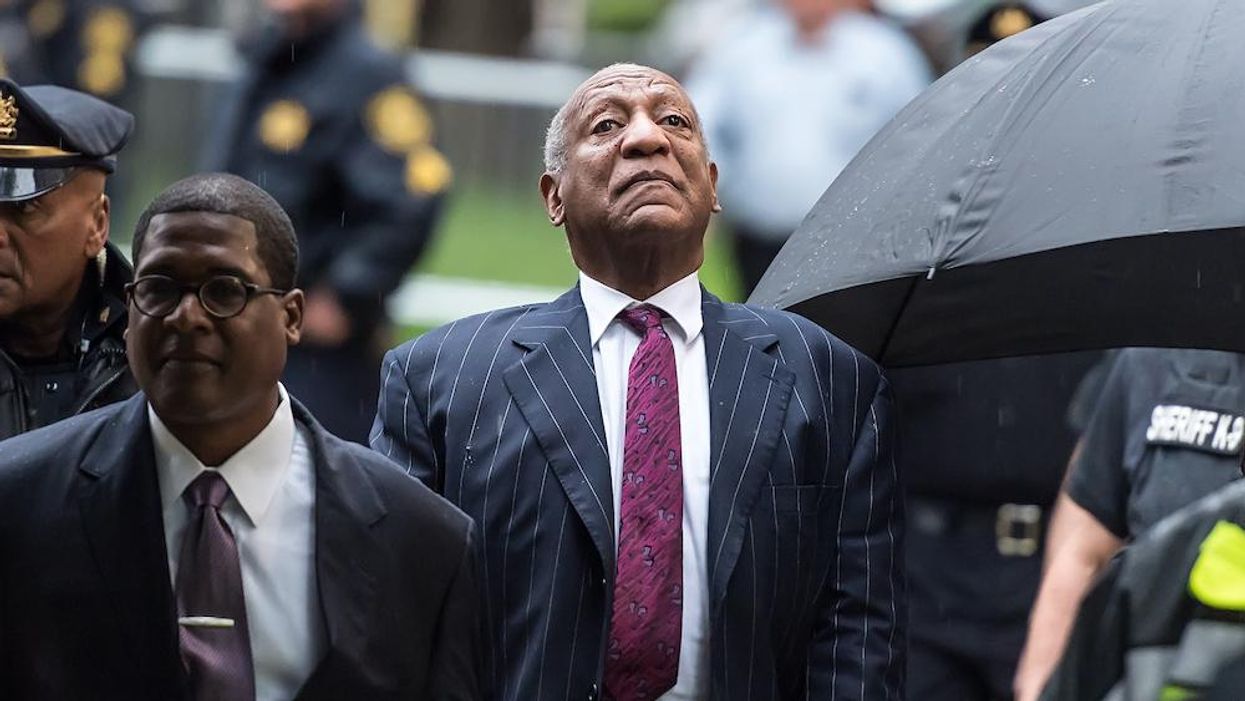
Photo by Gilbert Carrasquillo/Getty Images

The Pennsylvania Supreme Court overturned Billy Cosby's 2019 sexual assault conviction Wednesday and ordered the actor-comedian to be released from prison, the Associated Press reported Wednesday afternoon.
The court took the added step of barring future prosecutions on the charges, the Philadelphia Inquirer said.
Cosby, 83, has served more than two years of a three- to 10-year sentence for his conviction on charges that he drugged and sexually molested Andrea Constand in 2004.
The case began in 2005 after Constand went to then-Montgomery County District Attorney Bruce Castor with her allegations. Castor ultimately declined to file charges against Cosby in the case and reached an agreement with the comedian not to prosecute, the court noted.
Castor struck a deal with Cosby's lawyers that he would not prosecute on Constand's assault charges if Cosby sat for a deposition in a civil case Constand had filed against him.
Years later, the court said, Castor's successors "did not feel bound by his decision, and decided to prosecute Cosby notwithstanding that prior undertaking."
Prosecutors used parts of the testimony from Constand's civil case against Cosby in the criminal trial. In fact, Cosby wasn't charged until after a prosecutor in 2015 got hold of Cosby's newly unsealed "damaging" testimony from the civil case, the Inquirer reported.
From the court's decision:
In 2005, Montgomery County District Attorney Bruce Castor learned that Andrea Constand had reported that William Cosby had sexually assaulted her in 2004 at his Cheltenham residence. Along with his top deputy prosecutor and experienced detectives, District Attorney Castor thoroughly investigated Constand's claim. In evaluating the likelihood of a successful prosecution of Cosby, the district attorney foresaw difficulties with Constand's credibility as a witness based, in part, upon her decision not to file a complaint promptly. D.A. Castor further determined that a prosecution would be frustrated because there was no corroborating forensic evidence and because testimony from other potential claimants against Cosby likely was inadmissible under governing laws of evidence. The collective weight of these considerations led D.A. Castor to conclude that, unless Cosby confessed, "there was insufficient credible and admissible evidence upon which any charge against Mr. Cosby related to the Constand incident could be proven beyond a reasonable doubt."
Seeking "some measure of justice" for Constand, D.A. Castor decided that the Commonwealth would decline to prosecute Cosby for the incident involving Constand, thereby allowing Cosby to be forced to testify in a subsequent civil action, under penalty of perjury, without the benefit of his Fifth Amendment privilege against self-incrimination. Unable to invoke any right not to testify in the civil proceedings, Cosby relied upon the district attorney's declination and proceeded to provide four sworn depositions. During those depositions, Cosby made several incriminating statements.
D.A. Castor's successors did not feel bound by his decision, and decided to prosecute Cosby notwithstanding that prior undertaking. The fruits of Cosby's reliance upon D.A. Castor's decision — Cosby's sworn inculpatory testimony — were then used by D.A. Castor's successors against Cosby at Cosby's criminal trial. We granted allowance of appeal to determine whether D.A. Castor's decision not to prosecute Cosby in exchange for his testimony must be enforced against the Commonwealth.
Castor, the Inquirer said, objected to the new prosecution, citing his agreement with Cosby to not prosecute.
"Recalling his thought process at the time, the former district attorney further emphasized that it was 'absolutely' his intent to remove 'for all time' the possibility of prosecution," the court said, "because 'the ability to take the Fifth Amendment [in the civil case] is also for all time removed.'"
The state Supreme Court sided with Cosby, ruling that his agreement with Castor should have kept him from being charged in the case.
Read the full majority opinion:
This is a breaking story and will be updated.